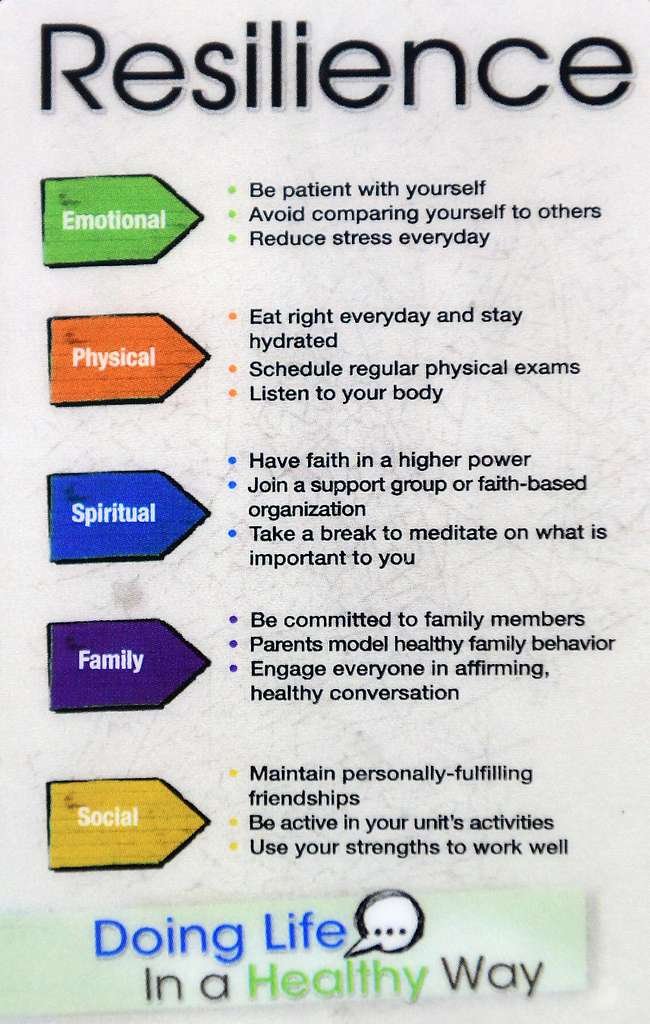In a world that often thrives on constant striving and pursuit of happiness, we often overlook the simple joys and blessings that surround us. Yet, nestled within the depths of our souls lies a powerful antidote to the unrest that plagues our minds: gratitude. It is an ethereal force that, when embraced, has the potential to transform our mental wellness from within. Though easily dismissed as a mere cliché, the potency of gratitude can neither be denied nor underestimated. So let us embark on a journey that unveils the importance of cultivating gratitude, not as an obligatory act of politeness, but as a soul-enriching practice that can nourish our minds and liberate us from the shackles of negativity.
Table of Contents
- The Power of Gratitude: Transforming Mental Wellness
- Cultivating a Positive Mindset: The Role of Gratitude
- Gratitude as a Coping Mechanism: Nurturing Mental Resilience
- Enhancing Emotional Well-being: The Science behind Gratitude Practices
- Incorporating Gratitude into Daily Life: Simple Strategies for Long-lasting Mental Wellness
- Q&A
- Future Outlook

The Power of Gratitude: Transforming Mental Wellness
Gratitude is a profound emotion that has the power to transform our mental wellness in unimaginable ways. When we cultivate a genuine attitude of gratitude, we open the doors to a more positive and fulfilling mindset.
The benefits of practicing gratitude are endless:
- Improved mental health: Gratitude helps us focus on the positive aspects of our lives, reducing negative emotions such as anxiety and stress. It promotes a sense of calm and contentment within ourselves, fostering overall mental well-being.
- Enhanced relationships: Expressing appreciation for others not only strengthens our connections but also cultivates a deeper sense of empathy and compassion. Gratitude helps us recognize the support and love we receive from others, fostering healthier and more meaningful relationships.
- Increase in resilience: When faced with challenges, gratitude provides a powerful perspective shift. It allows us to see difficulties as opportunities for growth and learning. By acknowledging the silver linings, we develop the resilience needed to overcome obstacles.
The practice of gratitude is a transformative journey. It requires us to consciously reflect on and appreciate the abundance in our lives, both big and small. By adopting an attitude of gratitude, we invite positivity, joy, and a greater sense of overall well-being into our lives.

Cultivating a Positive Mindset: The Role of Gratitude
In our journey towards happiness and fulfillment, cultivating a positive mindset is key. One powerful tool that can help us achieve this is the practice of gratitude. Gratitude is more than just saying “thank you” – it’s a transformative state of mind that can shift our perspective and open our hearts to the abundance around us.
So, how does gratitude play a role in cultivating a positive mindset? Here are a few ways:
- Shifting focus: Practicing gratitude allows us to shift our focus from what we lack to what we have. By acknowledging and appreciating the blessings in our lives, big or small, we redirect our attention to the positive aspects, helping us find joy and contentment in the present moment.
- Boosting resilience: When faced with challenges, a grateful mindset can help us bounce back and maintain a positive outlook. Expressing gratitude for the lessons learned from difficult experiences empowers us to see setbacks as opportunities for growth rather than mere obstacles.
- Nurturing relationships: Gratitude strengthens our connections with others. By expressing genuine appreciation and recognition, we not only uplift their spirits but also deepen our bonds. This fosters a supportive and positive environment where kindness and empathy flourish.
Cultivating a positive mindset is a lifelong journey, and gratitude is a powerful tool that can guide us along the way. By nurturing a grateful heart, we invite abundance, resilience, and deeper connections into our lives, ultimately leading to a more positive and fulfilling existence.

Gratitude as a Coping Mechanism: Nurturing Mental Resilience
Gratitude has long been recognized as a powerful tool for nurturing mental resilience in individuals facing adversity. In the context of coping mechanisms, the act of cultivating gratitude can provide a much-needed anchor amidst the stormy seas of life’s challenges.
By focusing on the positive aspects of our lives, we create new pathways in our brains that can redirect our attention away from negative thoughts and emotions. Gratitude reminds us of the blessings we have, no matter how small they may seem at times. It allows us to shift our perspective, enabling us to find meaning and purpose even in the face of difficulty.
Practicing gratitude can take many forms. Here are a few suggestions:
- Maintain a gratitude journal: Dedicate a few minutes each day to jotting down three things you are grateful for. This simple act of reflection can help cultivate a positive mindset.
- Express your appreciation: Take the time to thank others for their kindness or support. A heartfelt note, a small gesture, or a sincere conversation can go a long way in fostering gratitude.
- Engage in mindfulness: Embrace the present moment and appreciate the beauty around you. Whether it’s savoring your morning coffee, enjoying a walk in nature, or relishing the warmth of a loved one’s smile, mindfulness helps cultivate gratitude.
- Practice self-compassion: Extend gratitude to yourself by acknowledging your strengths, accomplishments, and acts of self-care. Treat yourself with kindness and compassion, knowing that you are doing your best.
Cultivating gratitude as a coping mechanism requires patience and consistent effort. It may not magically erase the struggles we face, but it can provide a steady anchor that keeps us resilient, reminding us of the goodness that still exists in our lives.

Enhancing Emotional Well-being: The Science behind Gratitude Practices
Understanding the science behind gratitude practices can provide us with powerful insights into enhancing our emotional well-being. Studies have shown that cultivating a sense of gratitude can have profound effects on our mental health and overall happiness.
Gratitude practices, such as keeping a gratitude journal or expressing thanks to others, have been found to activate areas in our brain associated with positive emotions. They stimulate the release of dopamine and serotonin, both neurotransmitters that play a crucial role in regulating our mood and promoting feelings of well-being.
- Increased Happiness: Engaging in gratitude practices has been linked to a greater sense of happiness and life satisfaction. By focusing on the positive aspects of our lives and expressing gratitude for them, we shift our mindset towards gratitude and positivity.
- Reduced Stress: Gratitude practices have been found to lower levels of stress and anxiety. When we regularly acknowledge the things we are grateful for, we create a sense of perspective and resilience, enabling us to better cope with life’s challenges.
- Improved Relationships: Expressing gratitude towards others fosters stronger social connections and deepens relationships. It helps us appreciate the acts of kindness we receive and encourages us to reciprocate, strengthening our bonds with others.
Incorporating gratitude practices into our daily lives can lead to a profound transformation in our emotional well-being. By harnessing the science behind gratitude, we can cultivate a positive mindset, reduce stress, and foster meaningful connections with others. So why not start today? Take a moment to reflect on the things you are grateful for, and watch as your emotional well-being flourishes.
Incorporating Gratitude into Daily Life: Simple Strategies for Long-lasting Mental Wellness
Gratitude is a powerful practice that can transform our outlook on life and enhance our overall mental wellness. By incorporating gratitude into our daily routines, we can cultivate a mindset of appreciation that can lead to long-lasting positive changes. Here are some simple strategies to help you infuse gratitude into your everyday life:
- Start your day with gratitude: Begin each morning by reflecting on three things you are grateful for. It could be the warmth of the morning sun, a supportive friend, or the sound of birds chirping outside your window. Taking a moment to acknowledge these blessings sets a positive tone for the day ahead.
- Maintain a gratitude journal: Dedicate a few minutes each day to jotting down things you are thankful for. Writing down your thoughts and experiences gives them more weight and allows you to revisit them later. Use this journal as a reminder of the positive aspects of your life, helping to shift your focus away from negativity.
- Show appreciation to others: Practice expressing gratitude towards the people around you. Send a heartfelt thank-you note, give compliments freely, or simply say ‘thank you’ more often. By acknowledging and appreciating others, you not only foster a sense of connection but also boost your own happiness and well-being.
Remember, incorporating gratitude into your daily life is not only beneficial for your mental wellness but can also have a ripple effect on those around you. Embrace these simple strategies and watch as your gratitude practice unfolds, leading to a more fulfilling and contented life.
Q&A
Why is gratitude important for mental wellness?
Expressing gratitude helps shift focus from negative thoughts to positive ones, promoting a more optimistic outlook on life. It can reduce stress, improve overall mental health, and enhance relationships and social interactions.
How does gratitude impact our brain?
When we practice gratitude, it activates areas in our brain associated with reward and positive emotions. It increases the production of dopamine and serotonin, neurotransmitters that enhance feelings of happiness and well-being.
Can gratitude improve mental health conditions?
Absolutely! Gratitude interventions have been proven to reduce symptoms of depression, anxiety, and increase overall life satisfaction. By focusing on what we’re grateful for, it helps reframe negative thinking patterns and fosters resilience.
Is practicing gratitude only about being thankful?
Practicing gratitude goes beyond simply saying “thank you.” It involves actively reflecting on the positive aspects of one’s life, appreciating small moments, and acknowledging the kindness of others. It encourages a mindset shift towards finding joy in everyday occurrences.
How can gratitude be incorporated into daily life?
There are numerous ways to incorporate gratitude into daily life. Some suggestions include keeping a gratitude journal, expressing appreciation to loved ones, volunteering, or simply taking a few minutes each day to reflect on what you are grateful for.
Can gratitude benefit relationships?
Absolutely! Expressing gratitude towards others can strengthen relationships, creating a positive cycle of kindness and appreciation. It fosters a sense of connection and makes both parties feel valued and supported.
Does gratitude have any physical benefits?
Interestingly, gratitude has been linked to improved physical health. It can lower blood pressure, boost the immune system, increase energy levels, and even improve sleep quality. The mind and the body are interconnected, after all.
Can gratitude be learned?
Yes, absolutely! Like any skill, gratitude is something that can be developed with practice. By consciously focusing on the positive aspects of life and incorporating gratitude exercises into daily routines, anyone can cultivate a sense of gratitude and reap its benefits.
Are there any downsides to practicing gratitude?
Practicing gratitude rarely has downsides. However, it is essential to strike a balance and not use it as a way to dismiss or ignore negative emotions. Acknowledging and working through challenges while maintaining a grateful mindset is the key to finding overall mental wellness.
Future Outlook
As we bring this exploration of gratitude in mental wellness to a close, let us take a moment to reflect on the incredible power it holds in our lives. With every step we have taken, we have delved into the profound impact that gratitude can have, not only on our mental health but on our entire existence.
In a world that often moves at a relentless pace, it becomes all too easy to lose sight of the beauty and wonder that surrounds us. The insidious pressures of everyday life can weigh heavily upon our spirits, leaving us trapped in a seemingly endless cycle of stress and unhappiness. It is during these turbulent times that gratitude emerges as a beacon of hope, a guiding light that illuminates our path to mental wellness.
Gratitude is no fleeting emotion; it is a practice, an art we can cultivate and nurture within ourselves. By seeking out the tiny acts of kindness, the fleeting moments of joy, we unlock a wealth of positivity that permeates through every aspect of our being. It is through the lens of gratitude that we learn to appreciate the simple pleasures, finding solace in the smallest of victories.
In our quest for mental wellness, gratitude stands as a formidable ally. It shifts our focus from scarcity to abundance, from despair to hope. It reminds us that even amidst the darkest of storms, there is always something to be grateful for—a supportive friend, a breathtaking sunset, a warm cup of tea on a cold winter’s day. It teaches us to savour the present moment, to embrace life’s blessings with open arms.
It is important to remember that gratitude is not a quick-fix remedy; rather, it is a lifelong journey. Just as physical exercise strengthens our bodies, regularly practicing gratitude strengthens our minds. It is through consistent effort that we cultivate a mindset of appreciation, transforming our mental state from one of turmoil to one of tranquility.
So, let us embark on this journey of gratitude together. Let us train our minds and nourish our souls with the beauty that lies within and all around us. May we learn to see the extraordinary in the ordinary, and find solace in the simplest of gestures. For in the realm of mental wellness, gratitude reigns supreme, guiding us towards a life of fulfillment and contentment.
As we bid farewell to this exploration, let us carry the spirit of gratitude into our daily lives. May it become our compass, steering us through both the joys and challenges that lie ahead. For with gratitude by our side, our mental wellness will blossom, allowing us to embrace life’s ever-changing tapestry with arms wide open. Remember, the power of gratitude lies within you, waiting to be unleashed.
As an affiliate, my content may feature links to products I personally use and recommend. By taking action, like subscribing or making a purchase, you’ll be supporting my work and fueling my taco cravings at the same time. Win-win, right?
Want to read more? Check out our Affiliate Disclosure page.